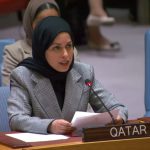Western and Middle Eastern leaders have issued statements urging Iran to refrain from further escalations following retaliatory strikes from Israel on Saturday. European leaders, including Germany’s chancellor and France’s foreign ministry, called for an end to the cycle of violence and urged for maximum restraint. British Prime Minister Keir Starmer and the United States also pushed for a de-escalation of tensions between the two countries.
Israel launched airstrikes on Iran in response to ballistic missiles fired by the Islamic Republic earlier in the month. The Israeli military targeted facilities used by Iran to manufacture missiles and surface-to-air missile sites. While there was no immediate damage assessment, the strikes did not hit oil or missile sites, which would have indicated a more serious escalation.
Regional leaders, such as Saudi Arabia and the United Arab Emirates, condemned the strikes, calling them a violation of international laws and norms. Turkey accused Israel of pushing the region towards a larger war and called for immediate action to stop the Netanyahu government. Iran-backed Hamas also criticized the attacks, stating that they pose a threat to the region’s security and safety.
While some leaders called for restraint and an end to the violence, Israel’s opposition leader, Yair Lapid, criticized the decision to avoid targeting strategic and economic sites in the attack. Lapid believed that Israel should have imposed a heavier price on Iran for its actions. The conflicting responses from leaders highlight the complexity of the situation and the challenges in finding a resolution to the ongoing conflict.
As tensions continue to simmer between Israel and Iran, it is crucial for all parties involved to prioritize peace and stability in the region. The international community plays a significant role in ensuring that both countries adhere to international laws and norms. Finding a peaceful resolution to the conflict is essential to prevent further escalations and maintain security in the region. It is imperative that all leaders work together to prevent a larger war and prioritize the safety and well-being of the people in the region.


























